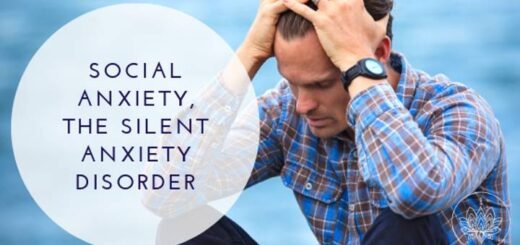Understanding DSM-5 Social Phobia Criteria in NZ
Understanding the DSM-5 Criteria for Social Phobia: A Comprehensive Overview for New Zealanders is an essential exploration for those seeking to grasp the nuances of social anxiety disorders within the Kiwi context. Social anxiety, characterized by intense fear or avoidance of social situations, can significantly impact daily life. By examining the social anxiety criteria outlined in the DSM-5, we can better appreciate the challenges faced by individuals in New Zealand grappling with this condition.
This overview not only elucidates the diagnostic criteria but also offers insights into local resources and support systems available for affected individuals. Understanding the social anxiety criteria can empower New Zealanders to seek help and foster a supportive community. For more in-depth information, visit this resource dedicated to exploring social phobia in New Zealand.
Understanding Social Phobia: An Overview
Social phobia, also known as social anxiety disorder, is an overwhelming fear of social situations that can significantly impair daily functioning. In New Zealand, this condition is often misunderstood, leading to stigma and a lack of support for those affected. The DSM-5 (Diagnostic and Statistical Manual of Mental Disorders, Fifth Edition) provides specific criteria for diagnosing social phobia, which helps mental health professionals assess and treat patients effectively. Understanding these criteria is crucial for individuals experiencing symptoms and for their loved ones in providing support. For more in-depth information about social phobia, visit Social Phobia New Zealand.
The DSM-5 Criteria Explained
The DSM-5 outlines several specific criteria to diagnose social phobia. To meet the diagnosis, individuals must exhibit a persistent fear or anxiety about one or more social situations in which they are exposed to possible scrutiny by others. This anxiety often stems from fears of being embarrassed, humiliated, or judged. The symptoms must last for six months or more and must cause significant distress or impairment in social, occupational, or other important areas of functioning.
In New Zealand, social gatherings, public speaking, and meeting new people can trigger these fears, leading to avoidance behaviors. Many individuals may find themselves declining invitations or feeling excessively anxious before attending social events. It’s important to recognize these behaviors as potential indicators of social phobia. For those seeking more information on the social anxiety criteria, resources are available at Social Phobia New Zealand.
Common Symptoms of Social Anxiety Disorder
Symptoms of social phobia can vary widely among individuals but often include both psychological and physical manifestations. People may experience intense fear or anxiety in social settings, excessive worry about embarrassing themselves, and physical symptoms such as sweating, shaking, or rapid heartbeat. In New Zealand, these symptoms can become particularly pronounced in situations like public speaking, attending parties, or even everyday interactions, such as making small talk in a café.
Understanding these symptoms is a crucial step for New Zealanders who suspect they may be struggling with social phobia. Many may find that their daily lives are significantly affected by these fears, leading to isolation and decreased quality of life. Recognizing that these responses are part of a recognized disorder can help individuals seek the appropriate support and treatment. For further insights into social anxiety, consult Social Phobia New Zealand.
Triggers Specific to New Zealand Culture
Cultural factors can greatly influence the experience of social phobia. In New Zealand, the laid-back social culture can sometimes exacerbate feelings of inadequacy among those with social anxiety. Events such as barbecues, sports gatherings, or community festivals may seem casual but can be particularly challenging for individuals with social phobia. The pressure to interact in these settings can lead to heightened anxiety and avoidance.
Moreover, the “tall poppy syndrome” prevalent in New Zealand, where those who stand out are often criticized, can contribute to the fear of judgment among individuals with social phobia. It’s essential to recognize these cultural nuances when discussing social anxiety criteria in a New Zealand context. For those struggling with these triggers, resources and community support can be found at Social Phobia New Zealand.
Treatment Options Available in New Zealand
Treatment for social phobia often involves a combination of therapy and medication. Cognitive-behavioral therapy (CBT) is particularly effective, helping individuals reframe negative thoughts and gradually confront feared situations. In New Zealand, access to mental health services varies, but many community health centers offer affordable therapy options and support groups specifically designed for individuals facing social anxiety.
Additionally, medication such as selective serotonin reuptake inhibitors (SSRIs) may be prescribed to help manage symptoms. It is essential for those affected to consult with qualified healthcare providers who understand the nuances of social anxiety criteria and can tailor a treatment plan to individual needs. More resources and information about treatment options can be accessed at Social Phobia New Zealand.
Strategies for Coping with Social Phobia
Coping strategies can play a significant role in managing social phobia. Individuals can benefit from practicing mindfulness and relaxation techniques, which can help reduce anxiety in social situations. Engaging in gradual exposure, starting with less anxiety-provoking social interactions and gradually working up to more challenging situations, can also be effective.
Support from friends and family can be invaluable, as they can provide encouragement when facing social situations. In New Zealand, local support groups and online communities can offer additional resources and camaraderie. By utilizing these coping strategies, individuals can begin to challenge their fears and improve their social skills. For additional support and coping strategies, visit Social Phobia New Zealand.
The Importance of Community and Support
Community support is vital for individuals struggling with social phobia. In New Zealand, there is a growing awareness of mental health issues, leading to more open discussions about social anxiety. Community resources, such as workshops and support groups, can provide individuals with the tools needed to navigate their fears and connect with others who share similar experiences.
Engaging with local mental health organizations can also help individuals access valuable resources, including therapy and educational materials about social anxiety criteria. By fostering a supportive environment and encouraging open dialogue, New Zealanders can work towards reducing the stigma surrounding social phobia and create a more inclusive society. For more information on community support, check out Social Phobia New Zealand.
FAQs
What is the DSM-5 and how does it relate to social phobia?
The DSM-5, or Diagnostic and Statistical Manual of Mental Disorders, Fifth Edition, is a comprehensive classification system used by mental health professionals to diagnose mental health conditions. It includes specific criteria for social phobia, also known as social anxiety disorder, which helps practitioners understand and identify the symptoms and experiences of individuals facing this condition.
What are the main symptoms of social phobia according to DSM-5 criteria?
The DSM-5 outlines several symptoms of social phobia, including an intense fear of social situations where one may be judged or scrutinized by others. Individuals may experience significant anxiety when facing social interactions, worry excessively about embarrassing themselves, and often go to great lengths to avoid such situations. These symptoms must cause considerable distress or impairment in daily functioning to meet the criteria for diagnosis.
How is social phobia different from general shyness?
While many people experience shyness, social phobia is characterized by a more intense and debilitating fear that can hinder daily life. According to the DSM-5 criteria, social anxiety disorder involves excessive fear that leads to avoidance behaviors and significant distress. Unlike general shyness, which may not interfere with social functioning, social phobia can severely impact a person’s ability to engage in everyday activities.
What are the common triggers for social phobia?
Common triggers for social phobia can include public speaking, meeting new people, attending social gatherings, or even situations where one may be observed eating or drinking. The DSM-5 criteria emphasize that these triggers provoke anxiety that is out of proportion to the actual threat posed, leading to avoidance or intense fear responses in affected individuals.
Can social phobia be treated, and what are the common treatment options?
Yes, social phobia can be effectively treated. Treatment options typically include cognitive-behavioral therapy (CBT), which focuses on changing negative thought patterns and behaviors associated with social anxiety. Medication, such as selective serotonin reuptake inhibitors (SSRIs), may also be prescribed to help manage symptoms. The goal of treatment is to reduce anxiety and improve functioning in social situations, aligning with the DSM-5 criteria for effective management of the disorder.
How can I find a mental health professional familiar with DSM-5 criteria for social phobia in New Zealand?
To find a mental health professional experienced in diagnosing and treating social phobia according to DSM-5 criteria in New Zealand, consider seeking recommendations from your general practitioner or looking for psychologists and psychiatrists with specializations in anxiety disorders. Many practitioners will have experience with the DSM-5 and can provide the necessary assessments and treatment options.
Is social phobia common in New Zealand?
Yes, social phobia is a relatively common mental health condition in New Zealand, as it is in many countries worldwide. It affects a significant portion of the population, leading to various degrees of impairment in social functioning. Awareness and understanding of the DSM-5 criteria can help individuals recognize symptoms and seek appropriate help and support.
References
- Understanding Social Phobia in New Zealand – A dedicated resource providing information and support for individuals dealing with social phobia, including insights into DSM-5 criteria.
- Understanding Social Anxiety Disorder – American Psychiatric Association – An overview of social anxiety disorder, including DSM-5 criteria, treatment options, and resources for patients.
- Social Anxiety Disorder – NHS – A comprehensive guide on social anxiety disorder covering symptoms, causes, and treatment, aligned with DSM-5 criteria.
- Social Anxiety Disorder – Anxiety and Depression Association of America – Provides detailed information on social anxiety disorder, including its diagnosis according to the DSM-5.
- Social Anxiety Disorder – Mind – A UK-based mental health charity that offers insights into social anxiety disorder, addressing DSM-5 criteria and personal experiences.




